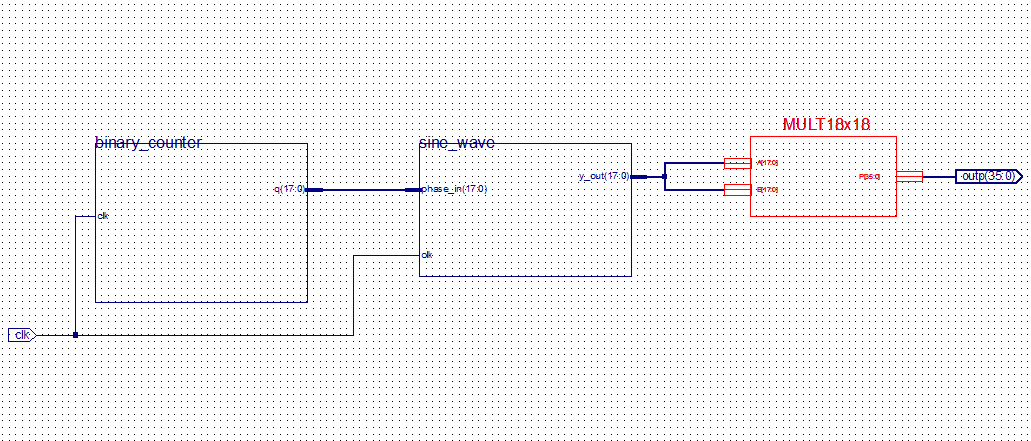I am trying to implement Square Law Device on Virtex 5 Family FPGA but before burning it to the FPGA I was trying to simulate it in the Xilinx ISE kit. I am not sure whether the code is correct or not but here is the procedure I followed:
- Created the schematic
- Generated and Instatiated the IP Cores for Binary Counter (just for simulation purpose) and Sine Wave Generator using Cordic
- Inserted a Verilog Test Fixture.
But I was not successful in simulating it. I am inserting the code for the Verilog Test Fixture.
// Verilog test fixture created from schematic F:\Xilinx\demod\demod\schema.sch - Wed May 01 19:16:25 2013
`timescale 1ns / 1ps
module schema_schema_sch_tb();
// Inputs
reg clk;
// Output
wire [35:0] outp;
// Bidirs
// Instantiate the UUT
schema UUT (
.outp(outp),
.clk(clk)
);
// Initialize Inputs
`ifdef auto_init
initial begin
clk = 0;
repeat(100) begin
#10 clk = 1;
#10 clk = 0;
end
end
`endif
endmodule
Also I am copying the schematic of the project.
 Where am I wrong?
Where am I wrong?
Edit: The multiplier element is red just because it got selected while taking snapshot. I tried removing the instiantion of IP cores and I got some output but not the correct one. After that I replaced the always begin loop with repeat(16) begin loop, but it shows an error near repeat.

repeatloop, but it shows an error? \$\endgroup\$